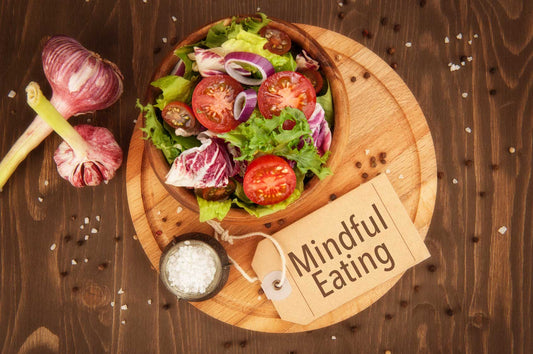Frequently Asked Questions
1. How does nutrition affect mental health?
2. What is the mind-gut connection?
3. Which foods are beneficial for gut health?
4. What essential nutrients support mental wellness?
5. What is mindful eating and how does it impact emotional well-being?
The connection between nutrition and mental health is an area of growing interest. The food we consume plays a significant role not only in our physical well-being but also in our mental wellness and emotional resilience. In this blog post, we will explore how various dietary choices can improve our moods and help maintain a healthy mental state. We will delve into specific nutrients, eating habits, and how they affect our relationship with mental health.
The Mind-Gut Connection
One of the most compelling areas of research highlights the relationship between our gut health and mental wellness. Researchers have found that the gut microbiome, which comprises trillions of microorganisms living in our digestive tract, can influence our mood and mental health.
Understanding the Gut-Brain Axis
The gut-brain axis refers to the bidirectional communication between the gastrointestinal tract and the brain. This connection is facilitated by various pathways, including neural, hormonal, and immunological routes. A balanced gut microbiome can promote the production of neurotransmitters such as serotonin, often referred to as the 'feel-good' hormone, which plays a crucial role in regulating mood.
Foods to Support Gut Health
- Probiotics: Foods like yogurt, kefir, sauerkraut, and kimchi can help maintain a healthy balance of gut bacteria.
- Prebiotics: Foods high in fibre, such as bananas, onions, and garlic, act as food for gut bacteria, supporting their growth.
- Whole grains: Oats, quinoa, and brown rice are beneficial for a healthy gut and can help maintain energy levels throughout the day.
Essential Nutrients for Mental Wellness
Our brain requires a variety of nutrients to function optimally. A diet deficient in essential vitamins and minerals can lead to mood disorders, cognitive decline, and increased susceptibility to stress.
Omega-3 Fatty Acids
Omega-3 fatty acids, commonly found in fatty fish, flaxseeds, and walnuts, have been shown to reduce symptoms of depression and anxiety. These healthy fats are essential for maintaining the structural integrity of brain cells, and deficiencies can disrupt neurotransmitter function, affecting our relationship with mood.
B Vitamins
B vitamins, including B12, B6, and folate, are crucial for the production of neurotransmitters. Low levels of these vitamins can lead to cognitive decline and mood disorders. Incorporate nuts, leafy greens, and whole grains into your diet to ensure adequate intake.
Antioxidants
Antioxidants combat oxidative stress in the brain, which can lead to inflammation and negatively impact mental health. Foods rich in antioxidants include berries, green tea, and dark chocolate. By incorporating these into your daily routine, you can enhance your cognitive functions and improve your overall emotional health.
The Power of Regular Meals
Regular meal patterns can significantly impact our mood, energy levels, and mental clarity. Skipping meals or having erratic eating patterns can lead to blood sugar fluctuations, causing irritability, anxiety, and fatigue.
Establishing Healthy Eating Habits
- Eat Balanced Meals: Combine protein, healthy fats, and carbohydrates to stabilize blood sugar levels.
- Don’t Skip Meals: Make it a point to eat at regular intervals to maintain energy levels and a positive mood.
- Stay Hydrated: Drink plenty of water throughout the day to support cognitive function and overall health.
The Role of Sugar in Mental Health
While sugar may provide a quick burst of energy, it often leads to a crash that can severely affect our mental state. High sugar intake has been linked to increased rates of anxiety and depression.
Managing Sugar Intake
It’s important to monitor your sugar consumption for improved mental health.
- Choose Whole Foods: Opt for whole fruits instead of sugary snacks to satisfy sweet cravings while providing nutrients.
- Check Labels: Be mindful of hidden sugars in processed foods.
- Find Alternatives: Use natural sweeteners like honey or maple syrup in moderation.
The Impact of Caffeine on Your Mood
Caffeine may have some cognitive benefits, such as increased alertness and focus, but excessive consumption can lead to anxiety and mood disruptions. It’s essential to find a balance when it comes to caffeine intake.
Moderation is Key
If you’re sensitive to caffeine, consider reducing your intake or opting for decaffeinated options. Exploring herbal teas or alternative beverages can also provide a caffeine-free way to enjoy warm drinks while promoting mental calmness.
Mindful Eating and Emotional Well-Being
Our relationship with food is often emotional. Practicing mindful eating can help cultivate a healthier connection with food, fostering understanding and appreciation for what we eat.
Benefits of Mindful Eating
- Improved Digestion: Eating slowly ensures better digestion and nutrient absorption.
- Increased Satisfaction: Taking time to enjoy meals can lead to greater satisfaction and reduced cravings.
- Better Emotional Awareness: Mindful eating encourages an understanding of emotional triggers related to food, allowing for healthier choices.
The Relationship Between Diet and Lifestyle
It's essential to remember that nutrition is just one aspect of mental well-being. Physical activity, sleep hygiene, and stress management also play crucial roles in maintaining mental health.
Integrating Healthy Lifestyle Choices
Consider the following lifestyle enhancements that can work alongside nutritional changes:
- Regular Exercise: Engaging in physical activity stimulates the release of endorphins, known as ‘happy hormones,’ which positively affect mood.
- Sleep Hygiene: Prioritise quality sleep to support cognitive function and emotional regulation.
- Stress Management: Techniques such as meditation, deep breathing, and yoga can help reduce anxiety and improve overall mental health.
Building a Supportive Environment
The relationships we cultivate with friends and family can greatly influence our mental health. A supportive environment fosters resilience and encourages healthier lifestyle choices.
Cultivating Positive Relationships
- Engage in Social Activities: Participate in community events or join clubs to foster connections.
- Discuss Your Feelings: Share your thoughts and experiences with trusted friends or family members to build emotional support.
- Seek Professional Help: If you find it challenging to navigate your mental health, don’t hesitate to consult a professional for guidance.
A Holistic Approach to Mental Wellness
In conclusion, nutrition plays a pivotal role in shaping our mental health. By understanding the relationship between what we eat and how we feel, we can make conscious choices that enhance our emotional well-being. Incorporating various nutrient-rich foods, staying hydrated, and establishing mindful eating habits will lead to a healthier mind and a more fulfilling life.
Remember that mental health is a journey, and making small, sustainable dietary changes can create a powerful impact. Embrace this journey, nurture your body, and witness your mental health flourish!
Further Information & Help
We hope you have found this blog useful. However, if you would like some help and guidance you can contact us here or book an initial consultation here.





